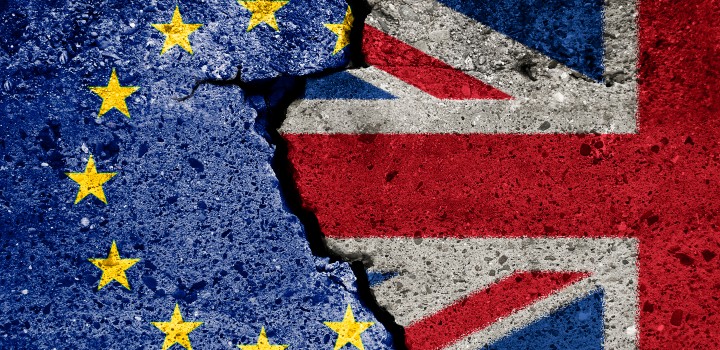New report on post-Brexit challenges and opportunities
By: Communications

Brexit and Beyond, a new report from academic think tank UK in a Changing Europe, underlines the challenges and opportunities that confront the United Kingdom now it has left the European Union.
The report brings together some of the country’s leading social scientists, who have written pieces addressing a swathe of issues ranging from the constitution to Covid-19, from consumer protection to relations with China.
Welcoming the report, University of East Anglia (UEA) professor and UK in Changing Europe Senior Fellow Hussein Kassim, said: “Despite the deal, Brexit is not over and the European question in British politics has not been settled. This report explores the unfinished business left by the agreement and the wider questions that are still very much alive following the 2016 UK referendum.”
Prof Kassim, professor of politics in UEA’s School of Politics, Philosophy, Language and Communication Studies, wrote a chapter on relations with the EU. His UEA colleagues, Prof Bruce Lyons of UEA’s School of Economics, and Prof Andreas Stephan, head of the School of Law, also contributed chapters on state aid control and competition policy.
Other highlights include:
-
Thomas Sampson’s analysis of the long-term economic effects of the Trade and Cooperation Agreement (TCA) finds UK exports to the EU could fall by more than a third over the next decade and total UK trade by more than 10%, with knock-on effects for incomes in the UK.
-
Mike Brewer warns the pandemic has worsened the UK’s already high and persistent structural inequalities. But, as Arianna Giovannini and Tom Forth argue, if ’levelling up’ simply means some extra infrastructure spending in the North, without real devolution of power and money, it is unlikely to achieve much. Sustained policy action across a range of issues, from housing to business investment to skills and education to social care, is required, combined with a genuine, and long-term, effort to redistribute wealth, power and institutional capacity from Whitehall and Westminster. In some respects, it would, ironically, make the UK look more European, not less. But it represents the real opportunity for Britain beyond Brexit.
-
Sara Hobolt and James Tilley show Brexit identities will continue to shape how the public interprets political events, from the vaccine rollout to economic growth and the future of the Union. Yet, as Paula Surridge explains, the traditional left-right political divides remain, and it will be the interaction of these two divides that shapes UK politics in future.
-
The implications for UK Union of the TCA with the EU are profound. Nicola McEwen explains there would likely be a hard border between England and Scotland in the event of Scottish independence. However, she argues that, as with the Brexit referendum, what might really matter in any Indyref2 is not warnings of economic disruption but the argument for self-determination.
More than 70 academics from across the UK have contributed to the report, including Tim Bale, Catherine Barnard, Mark Blythe, Sir John Curtice, Danny Dorling, Sir Lawrence Freedman, Conor Gearty, Jonathan Portes, Meg Russell and Jill Rutter.
The collection is divided into seven sections, dealing with: policy, public opinion, politics, the UK union, the economy, Government and law, and the UK’s external relations.
Each of the 72 pieces has been written by a recognised expert in the field. They address key themes via a consideration of where we have come from, where we are now and where we are heading. The report aims to provide a comprehensive overview of the key issues confronting the UK in the months and years ahead.
The full Brexit and Beyond report can be found here.
As we move into the post-Brexit period, the UK in a Changing Europe will continue to act as a reliable source of expertise on the major issues confronting the UK. The Brexit process has and will continue to have enormous implications for politics, economics and society, and its effects will be compounded by the pandemic. Understanding these on the basis of evidence-based analysis will be crucial to ensure that public and political debates, and policy responses, meet the challenges and make most of the opportunities of the post-Brexit era.
Related Articles

Employment and wellbeing often don’t correlate
Not all jobs are good jobs, and new research from the Universities of East Anglia (UEA) and Birmingham finds such work can have a negative impact on wellbeing.
Read more
Mental health disorders and alcohol misuse more common in LGB people
Lesbian, gay and bisexual (LGB) people are significantly more likely to have mental health conditions and report alcohol and drug misuse than heterosexual people according to a new study led by UCL in collaboration with the University of East Anglia and
Read more
Continued strict control measures needed to reduce new COVID-19 strains
A group of scientists is calling on governments to consider the continued use of strict control measures as the only way to reduce the evolution and spread of new COVID-19 variants.
Read more